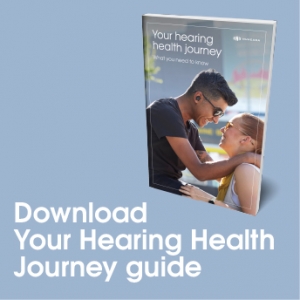
Auditory processing disorder (APD), also known as central auditory processing disorder (CAPD) is a condition that impacts the brain’s ability to filter and interpret sounds. It can affect people of all ages, from school children to adults, and can have a serious impact on quality of life for those that live with it.
It’s a common misconception that people with APD have impaired hearing. The truth is that people living with APD have normal hearing abilities, but their brains have difficulty receiving, organising and making sense of sounds. To put it another way, their ears pick up the sounds normally, but their brains interpret these sounds in a faulty manner.
This is especially true of speech sounds. Left undiagnosed and untreated, APD can result in learning difficulties as well as speech and language delays in younger children.
Common Symptoms of Auditory Processing Disorder
While not all people living with APD display the same symptoms, the following tend to be the most common:
- Obvious confusion and asking “what?” a lot
- Poor spelling skills
- Potential for poor social skills
- Language develops later than their peers or older children in the family
- Inattentive behavior leading to distraction
- Greater difficulty when learning how to read
- Mishearing of certain words or sounds
- Struggle to hear correctly in a noisy environment
- Difficulty when attempting to follow directions with multiple steps
- Appears to not have as much information to work with as peers due to not interpreting it correctly
Parents who notice any of these symptoms in their child shouldn’t hesitate to visit a doctor for screening. With early diagnosis and intervention, most children with APD can stay on track with their peers.
![]()
IQbuds Supporting People with Autism
Nuheara named as a registered provider to Australia’s National Disability Insurance Scheme (NDIS) to support people with Autism.
APD Consists of Three Distinct Conditions
According to Dr. Jack Katz, a medical pioneer in the identification and treatment of auditory processing disorder, the condition consists of three separate problems. The first of these is auditory memory. Due to this issue, children have difficulty memorizing facts and numbers and struggle with language and reading skills. One way this appears is that the child takes longer to retain his or her address and telephone number than other children. It’s also more challenging for them to retain lists and verbal instructions
The second part of this disorder includes problems with language processing, which presents the most issues for many children. Due to the way the brain processes spoken communication, kids with auditory processing disorder don’t always understand what others are asking them to do. They may also struggle to understand social skills and make friends. Oral tests are difficult, as is following spoken stories involving several different characters. Difficulties with language processing can also present as children shying away from conversations due to fear of how much time it would take to understand the speaker’s words and formulate a response to them.
Problems with the proper discrimination of sounds is a third component of this disorder. Children learn to talk by imitating the sounds they hear from the adults and other children around them. Because of the faulty brain signals, speech may sound very unclear. The child may drop word endings or run words together thinking they make up a single word. This in turn can impact how well kids with this disorder learn to read and spell.
![]()
NDIS Assistive Technology Purchases
Learn more about using NDIS funding to purchase IQbuds BOOST
Causes and Diagnosis of APD
Although some people are born with this disorder, others develop it after experiencing head trauma, chronic ear infections, or lead poisoning. It’s also possible that the condition developed due to multiple or unknown causes. If an audiologist suspects auditory processing disorder, he or she will look for the following issues:
- Attention: The person can’t sustain attention long enough to complete a task.
- Cohesion: With this higher-level skill, people form inferences from things they hear or read. This, along with completing verbal math problems or understanding riddles, can be challenging for kids with auditory processing problems.
- Discrimination: It’s difficult for the person to differentiate between similar sounds or words.
- Figure-ground: This refers to a person’s inability to pay close attention in a noisy environment.
- Memory: The disorder makes it difficult for kids to remember such things as study materials, lists, and directions.
Once an audiologist has provided a firm diagnosis, the person’s family, peers, teachers and/or colleagues can all help them adapt to their auditory processing challenges and live a full life.
IQbuds2 MAX
Advanced hearing bud technology personalized to your ears.
IN STOCK READY TO SHIP
How to Help a Person with APD
Asking the person to look at whom he or she is speaking to and asking the speaker to use a slower rate and slightly higher voice pitch can help tremendously.
When dealing with children living with APD, at home, parents should provide a quiet, distraction-free environment to complete schoolwork. Both parents and teachers should ask the child to repeat directions back to ensure understanding and repeat them in a different way if not understood.
Through technology, Nuheara is working to innovate new solutions for children and adults with auditory processing challenges. In addition to anecdotal evidence from a growing number of Nuheara customers, a recent trial with the University of Melbourne recently provided a preliminary report into its findings on the use of IQbuds BOOST™ and children with Autism.
“It noted that while the subject numbers were small, there was a significant improvement in auditory attention obtained. The ability to concentrate in background noise has been identified as a key factor influencing academic progress for children with Autism Spectrum Disorder (Ashburner et al. 2008), and as such, was an encouraging result.”
Testimonials from Nuheara customers with APD


